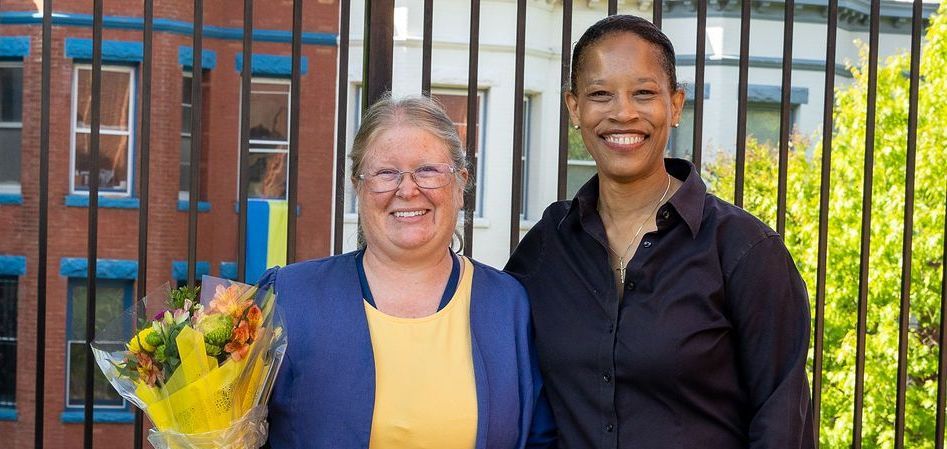St. Peter School Teacher Wins 2023 Golden Apple Award

May 12, 2023
WASHINGTON — St. Peter School Pre-Kindergarten Teacher Miss Jean Zwald has been awarded one of only 10 Golden Apple Awards from The Roman Catholic Archdiocese of Washington. This is the first ever Golden Apple Award given to a St. Peter School teacher.
“Miss Zwald has touched hundreds of lives here at St. Peter School, and her lifelong contributions to Catholic education make her worthy of the highest recognition,” said St. Peter School Principal Karen Clay . “St. Peter School’s reputation for excellence begins in Miss Zwald’s pre-kindergarten classroom, where children thrive with her love and care. We are grateful to have her as part of our school community.”
The award, given annually to 10 Catholic school teachers in the Archdiocese of Washington for teaching excellence and dedication to Catholic education, is sponsored by the Donahue Family Foundation and includes a $5,000 check and a golden apple.
Miss Zwald joined St. Peter School in 2006 after 17 years as an elementary/early childhood teacher. She holds a master’s degree in Elementary Education from Clarion University and Bachelor of Science Degrees in Elementary and Early Childhood Education from Lock Haven University.
# # #
EDITOR’S NOTE: Photos for publication are available here.



St. Peter School, Capitol Hill
422 Third Street SE
Washington, DC 20003
Phone:
(202) 544-1618
Fax: (202) 547-5101

